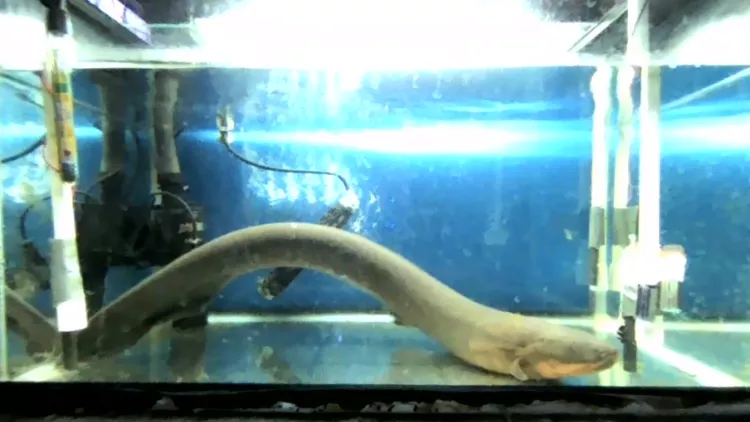Electric eels can genetically modify cells of nearby animals
Electric eels have the ability to induce genetic modifications in small fish larvae through electroporation, according to a study.
In a recent study, researchers from Nagoya University in Japan have demonstrated that electric eels can release electricity potent enough to induce genetic modifications in small fish larvae.
This ground-breaking study challenges the conventional belief that electroporation, a gene delivery technique in which an electric field is generated to create temporary pores in cell membranes to enable the entry of molecules like DNA or proteins into the cells, is confined to laboratory settings.
Beyond the lab
Led by Professor Eiichi Hondo and Assistant Professor Atsuo Iida, the research aimed to explore the occurrence of electroporation in natural environments. The team hypothesised that the electric discharge from an electric eel in a river might impact the cells of nearby organisms, allowing the incorporation of environmental DNA fragments.
Natural power sources
To test their theory, the researchers exposed fish larvae in their laboratory to a DNA solution containing a visible marker. They then released an electric eel and induced it to discharge electricity by biting a feeder. Surprisingly, five percent of the larvae displayed markers indicative of gene transfer.
“This indicates that the discharge from the electric eel promoted gene transfer to the cells, even though eels have different shapes of pulse and unstable voltage compared to machines usually used in electroporation,” said Iida.
This discovery aligns with previous studies that observed naturally occurring fields, like lightning, influencing genetic alterations in nematodes and soil bacteria.
The study's results have sparked enthusiasm about the possibilities of electric field research in living organisms. “I believe that attempts to discover new biological phenomena based on such 'unexpected' and 'outside-the-box' ideas will enlighten the world about the complexities of living organisms and trigger breakthroughs in the future,” said Iida.
The findings of the study was published in the journal PeerJ.




























